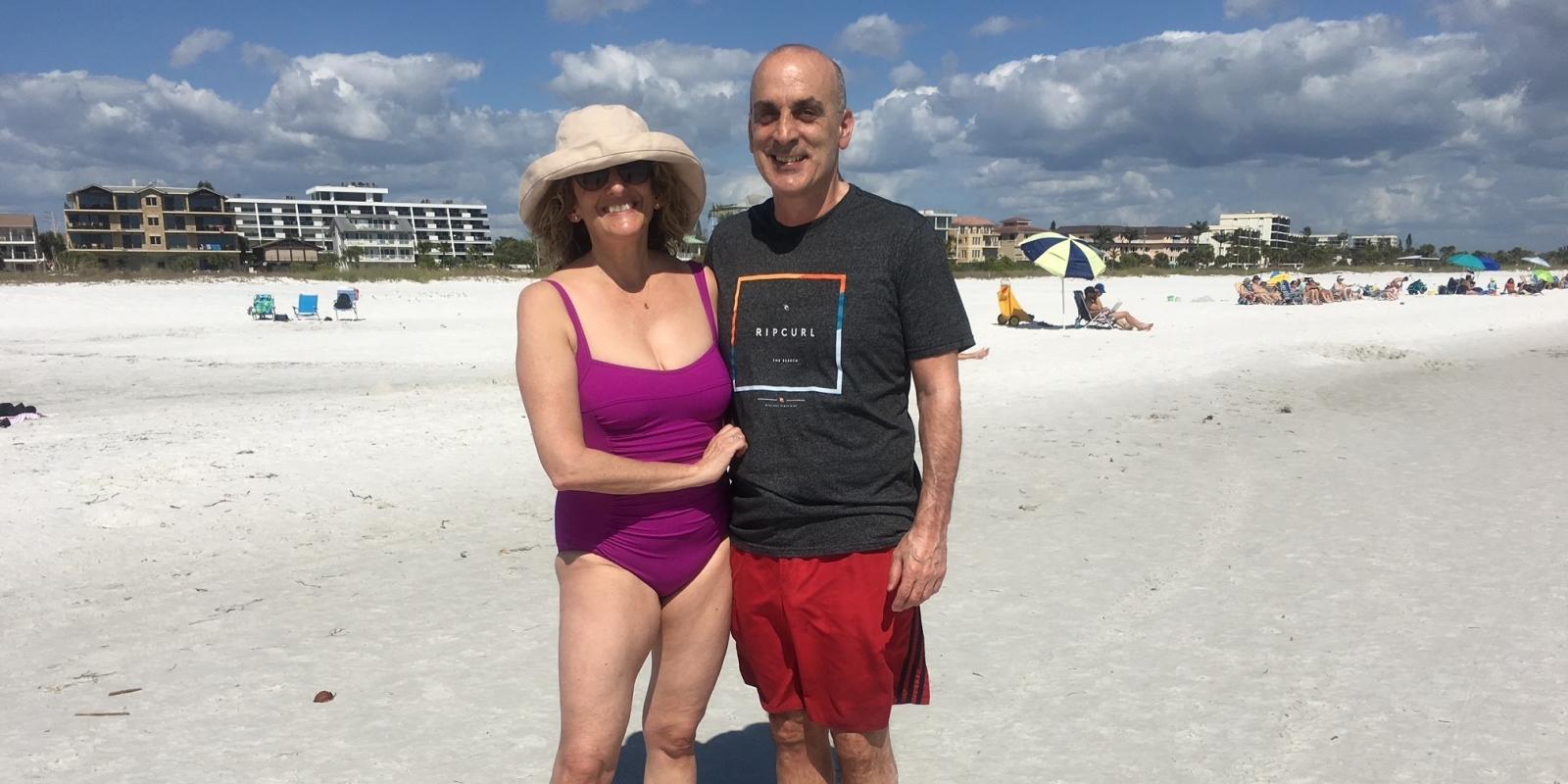“Honey, can you take a look at something? My husband looked anxious. “I think something’s wrong.”
What he wanted me to look at was his belly. His middle-aged man potbelly. “What is that?” he said, completely seriously. “It came out of nowhere!”
It’s true. My eats-chocolate-covered-pretzels-in-the-middle-of-the-night husband has never had an ounce of fat on him. This newly arrived tiny little paunch was his first experience with not being completely at ease with his weight, with thinking about his weight at all.
Kind of makes me want to kill him.
“It’s called a belly.” I said, “Welcome to my world.”
Unlike my candy-eating husband, I think about my weight all the time. It’s how I measure time. At 18, when I starred in my High School Production of Sweet Charity, I weighed 138 pounds; when I graduated college, 142. I got my first apartment at 145, got married at 138. I weighed 149 when I got swine flu in 2011, and 136 when it was over. 143 when COVID lockdown began and 148 when I emerged, comfortably clad in sweatpants, three months later.
For every milestone, small or large, I remember what I weighed. My weight has been remarkably stable over the years, so rather than being a yo-yo dieter going up and down, I’m more of a Mr. Potato Head dieter: forever trying on different looks, but still looking basically the same, still a potato, just with different hats.
‘Forty years spending about a half hour a day thinking, tracking, fretting or obsessing about my weight.’
By my calculation, I’ve wasted 438,000 minutes of my life, that’s 7,300 hours—304 days!—thinking about my weight. Forty years spending about a half hour a day thinking, tracking, fretting or obsessing about my weight. It adds up to nearly a whole year of my life wasted worrying about a few extra pounds.
What did it get me? Not the size 6 body I craved, not a healthy relationship with food, not even a chance of posing for a photo without feeling like every time someone points a camera at me I have to suck in my stomach so hard it’s a wonder I don’t pass out. So why did I do it? Why, as 60 looms near, do I still do it?
I could blame the diet industry, a $3.4 billion behemoth in the United States alone, dedicated to keeping us thinking about our weight. Those diet companies get their claws in early: a horrifying 2015 study by Common Sense Media found that 80% of 10-year-old girls have been on a diet, and even 8-year-old girls wish they could be thinner. It doesn’t get better as we age. A 2017 study of more than 1,700 women older than age 50 found that a “significant number” of them displayed eating disorder symptoms and deployed extreme weight control methods.
With life expectancy for women at nearly 80 years, that means by the time we cross over to the great beyond, where calories don’t count and eating healthily means downing a cheese plate and a loaf of crusty bread before a meal of fettucine alfredo with a side of popcorn shrimp and a chocolate chip cookie chaser, we women (men diet too, but not nearly in such big numbers) will have spent more than 70 years unhappy with our weight.
I wonder what it would be like to be my husband, to have spent my whole life never worried about how many calories that slice of pizza has, never feeling guilty about having a piece of birthday cake. I truly cannot imagine it.
Who would I be without self-deprecating jokes about my appearance? What would I do at restaurants with all the time I’d save by not scanning the menu for words like “crispy” (bad) or “steamed” (tasteless but good)? How could I give up the diet books and exercise regimes and miracle cures and time spent wondering if Ozempic is right for me?
I doubt I’ll ever find out. After a lifetime of dieting and worrying about my weight, I can’t give it up. Like someone in an abusive relationship, I keep going back to what I know. Maybe the answer isn’t to try to stop caring, but to “Embrace the Suck,” a phrase I’ve heard recently.
I hate my weight. I hate that I hate my weight. It sucks. Getting older is full of challenges: feeling invisible, forgetting names, feigning interest in reality TV shows featuring drunken singles simply so you won’t be seen as out of touch.
But one benefit of aging is acknowledging what’s out of your control and soldiering on anyway. And by soldiering on, I mean sitting on the couch with my husband, a bowl full of chocolate covered pretzels resting on my paunch, counting the minutes I’ve spent enjoying my life, rather than wasting it worrying about a few extra pounds.
Nancy Friedman is a writer, wife, mother of twins, and political consultant in New York City. After nearly two decades as a freelance television writer and producer for clients including Nickelodeon, HBO, Lifetime and ESPN, Friedman co-founded the first kid-video driven, family focused marketing agency, KidzVuz, where she headed communication and engagement for a decade.
Photo caption: The writer with her husband on a recent trip to Florida.
Photo credit: Courtesy Nancy Friedman













